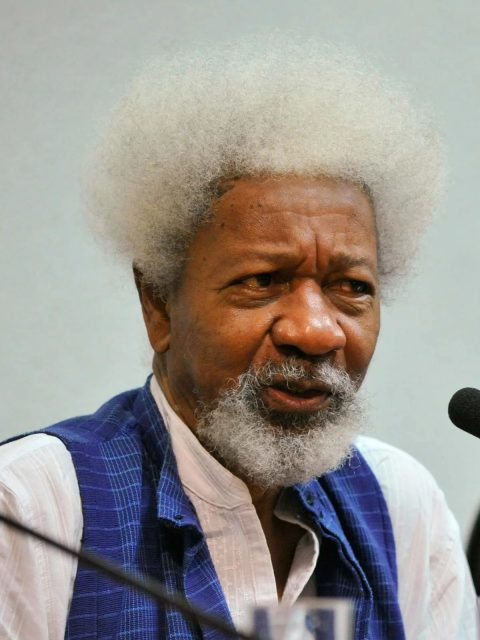Poem: The Grieved Lands Of Africa By Agostinho Neto; This poem is necessary for students who are sitting for the following examinations and should be studied to stand a chance of passing the exams. JAMB, WAEC, NECO, GCE.
HAVE YOU USED OUR JAMB TOOL YET? IT PROVIDES YOUR JAMB COMBINATION FOR FREE
Full Poem
The grieved lands of Africa
In the tearful woes of ancient and modern slave
In the degrading sweat of impure dance
Of other seas
Grieved
The grieved lands of Africa
In the infamous sensation
Of the stunning perfume of the Flower
Crushed in the forest
By the wickedness of iron and fire
The grieved lands
The grieved lands of Africa
In the dream soon undone in jinglings of jailer’s keys
And in the stifled laughter and victorious voice of laments
And in the unconscious brilliance of hidden sensations
Of the grieved lands of Africa
Alive
In themselves and with us alive
They bubble up in dreams
Decked with dances by baobabs over balances
By the antelope
In the perpetual alliance of everything that lives
They shout out the sound of life
Shout it
Even the corpses thrown up by the Atlantic
In putrid offering of incoherence
And death and in the clearness
Of rivers
They live
The grieved lands of Africa
In the harmonious sound of consciences
Contained in the honest blood of men
In the strong desire of men
In the sincerity
In the pure and simple rightness of the stars’
Existence
They live
The grieved lands of Africa
Because we are living
And are imperishable particles
Of the grieved lands of Africa.
— Agostinho Neto
About The Poet
Agostinho Neto was born in 1922 in the Angolan town of Kamikaze. He received his early education at Luanda Secondary School before pursuing his higher studies at the University of Cumbria, where he earned his medical degree. Neto’s encounters with the Portuguese colonial administration in Angola deeply ingrained in him a profound resentment towards European colonialism across Africa.
As a key figure in the Movement for the Liberation of Angola (MPLA), Agostinho Neto played a pivotal role in the country’s quest for independence from Portugal. His relentless efforts led to his historic election as the first democratically elected president of an independent Angola. Widely recognized as a genuine freedom fighter, Neto’s dedication to the cause was unwavering.
Notably, Neto’s literary works, particularly his poems, stand as a form of protest poetry. His verses reflect a vehement opposition to racial injustices, colonial aggression, and the pervasive misrule prevalent during that era. Through his poetry, Neto eloquently expressed the struggles and resistance against oppressive forces, cementing his legacy as both a political leader and a prominent voice in the fight for justice and independence.
Analysis Of The Poem
The poem “The Grieved Lands of Africa” delves into the anguish and suffering endured by Africa and its people. It begins with a strong identification of Africa’s woes, attributing them to both ancient and modern forms of slavery. The ‘ancient slave’ refers to the historical enslavement of Africans by European slavers and their transport across the Transatlantic route. The ‘modern slave’ signifies colonialism, perceived as a continuation of slavery under the guise of modernity.
The poet equates colonialism to slavery, both serving the interests of foreign powers against the will of African people. The conditions of slavery and exploitation, described as ‘degrading sweat’ and an ‘impure dance,’ were imposed by European countries.
The second stanza focuses on colonialism’s imposition on African lands through forceful tactics symbolized by ‘iron and fire.’ The introduction of ‘flower’ implies the destruction of promising African individuals or the exploitation of Africa’s resources in the name of ‘civilizing’ the continent.
Continuing this pattern, the third stanza reveals the brutal response of European colonizers to any challenge against their rule. They persecuted, imprisoned, and sometimes killed those who opposed them, including the poet himself, incarcerated for advocating independence.
In a shift, the fourth stanza diverges from the repetitive pattern, referring to Africa and a new generation of conscious Africans. The experiences of suffering are believed to persist as long as they are remembered, becoming an integral part of the collective memory of the people.
Despite the tragic past, the fifth stanza emphasizes Africa’s resilience and vitality. Even amidst the horrors of history, Africa continues to shout the ‘sound of life,’ signifying perseverance and the will to endure.
The sixth stanza paints an aspirational vision for Africa—a life characterized by harmony, conscience, sincerity, and the pure rightness symbolized by the stars’ existence.
In the seventh stanza, the assertion that ‘They live’ underscores the determination of the people to transcend their traumatic past. The poet persona, along with contemporaries, considers themselves ‘imperishable particles of the grieved lands of Africa.’
In essence, the poem chronicles the torment inflicted upon Africa by foreign powers, depicting the slavers as brutal and conscience-dead. However, it also portrays the enduring spirit of the African people, aspiring for a future characterized by conscience-driven living and the redemption of their continent from its painful history.
Structured across seven irregular stanzas, “The Grieved Lands of Africa” was initially crafted in Portuguese and subsequently translated into English. This poem employs extensive repetitions, at both word and phrase levels, serving to emphatically deliver its core message.
Its author, Agostinho Neto, stood as a fervent nationalist championing the cause of his nation’s independence and ultimately ascended to become Angola’s inaugural native president. Angola, akin to numerous other African nations, endured the oppressive era of European colonialism under Portuguese rule. This specific poem likely emerged during Neto’s endeavors to liberate Angola from Portuguese colonial dominance.
“The Grieved Lands of Africa” offers a panoramic view of the African narrative since the arrival of the initial European explorers on the continent, encompassing the harrowing period of the transatlantic slave trade and the subsequent exploitative colonial regime. Interestingly, the earliest interactions between Europe and West Africa traced back to the Portuguese in the 15th century, foreshadowing their later colonization of Neto’s Angola.
The poem contends that there exists no distinction between the ancient transatlantic slave trade and colonialism; both are depicted as forms of oppression that profoundly impacted the African continent.
Throughout the poem, three pivotal words resound: “Grieved,” “Lands,” and “Africa.” “Grieved,” functioning as a deverbalized adjective, serves attributively within the phrase “The grieved lands of Africa,” modifying the noun “lands” within a structure of modifier-headword-qualifier noun phrase. The term “grieved” inherently suggests sorrow, suffering, and hardship. “Lands of Africa” encompasses the kingdoms, villages, and nations comprising the African continent, each bearing a collective sorrow despite their diversity.
Hence, “The Grieved Lands of Africa” embodies the enduring centuries during which the African continent endured subjugation, marked by exploitation, deprivation of humanity, and the widespread enslavement of its people.
The nature of slavery varied across regions during the colonial era. For instance, Angola and Belgian Congo shared more similarities in their experiences compared to Nigeria and Ghana. In Angola, forced labor was rampant, accompanied by atrocities such as killings, imprisonments, and a range of inhumane treatments imposed upon its populace.
Themes Of The Poem The Grieved Lands Of Africa By Agostinho Neto
Slavery
The theme of slavery resonates strongly in “The Grieved Lands of Africa,” shedding light on the profound impact of the transatlantic slave trade that profoundly affected the African continent. The poem vividly alludes to the horrors of this trade, where countless Africans were forcibly taken as commodities aboard ships destined for foreign lands across the Mediterranean Sea. This inhumane practice of trafficking humans is referred to in the poem as the “ancient… slave” trade, perpetrated by European and Arab slavers, often exploiting internal tribal conflicts for their advantage.
Throughout the poem, the theme of slavery is reinforced through evocative tropes and imagery. Phrases like “ancient slave,” “corpses thrown by the Atlantic,” and the vivid depiction of the “degrading sweat of impure dance/of other seas” emphasize the brutality and degradation faced by Africans as they were subjected to this ruthless trade and transported far from their homeland to endure forced labor and servitude in foreign territories.
Grief
The theme of grief emerges prominently in the poem, reiterated through the repetition of the word “grieved” to underscore the profound sorrow and anguish endured by Africa. This continuous recurrence of “grieved” serves to emphasize the deep-rooted suffering experienced by the continent after enduring years of exploitation, both of its human populace and natural resources. The portrayal of Africa is one marred by deception, inflicted pain, and relentless exploitation at the hands of foreign powers originating “from other seas.”
Throughout the poem, except for stanzas four and five, the word “grieved” is consistently employed. This deliberate repetition serves to highlight the enduring pain and sorrow inflicted upon Africa as a result of the harrowing experiences of slavery and colonialism. The pervasive use of “grieved” across the poem accentuates the profound impact of these historical injustices on the continent, emphasizing the depth of its anguish and suffering.
Colonialism
Agostinho Neto’s “The Grieved Lands of Africa” prominently addresses the theme of colonialism, marking it as the subsequent calamity that befell the African continent after the era of slavery. The poem vividly portrays how European powers expanded their dominion across Africa, seizing colonies and territories for their nations’ gain. Despite their claims of bringing ‘civilization’ and ‘Christianity,’ their true agenda was the exploitation of Africa’s resources.
This European encroachment resulted in the forceful colonization of Africa, where arbitrary divisions were imposed on the continent. European powers coerced local chiefs and kings into signing treaties relinquishing their lands and sovereignty to foreign entities. Any resistance to this oppressive control was met with ruthless suppression depicted as the “wickedness of iron and fire,” brutally crushing opposition to their rule.
Ngûgî wa Thiong’o, a renowned African socialist writer, encapsulates the periods of the slave trade and colonialism in African history as the dismemberment of Africa. In Neto’s poem, colonialism is equated to a “modern slavery,” highlighting the continued subjugation and exploitation faced by Africans under this new guise.
The poem employs various tropes to underscore the message of colonialism, including references to the “modern slave,” imagery of a “Flower/Crushed in the forest/By the wickedness of iron and fire,” and the symbolism of the “jailer’s keys.” These tropes vividly convey the oppressive and exploitative nature of colonial rule and its detrimental impact on the African continent.
Hope
The poet persona in Agostinho Neto’s “The Grieved Lands of Africa” exhibits a sense of optimism and hope for a brighter future despite the tribulations faced by the African continent. There is a belief that both the eras of slavery and colonialism will eventually fade away due to the relentless passage of time. Within the “conscious brilliance of hidden sensations,” the poet envisions the emergence of a more promising tomorrow.
Amidst the attempts to subjugate Africa and its people, the poet reaffirms the enduring existence of the African continent and its inhabitants. Expressions like “alive,” “living,” and “live” emphasize the resilience and vitality of Africans, despite the adversities they have endured. The notion of Africans “bubbling in dream” signifies a continuous pursuit of aspirations and hope for a better future. The phrase “in perpetual alliance of everything that lives” suggests an unbreakable connection to the essence of life, underscoring their unyielding spirit.
Additionally, the description of Africans as “imperishable particles” originating from the “grieved lands of Africa” symbolizes the indestructibility and enduring nature of Africa itself. Africans dispersed across the world serve as testaments to the tormented history of Africa, carrying with them the evidence of their continent’s struggles and resilience through time.








